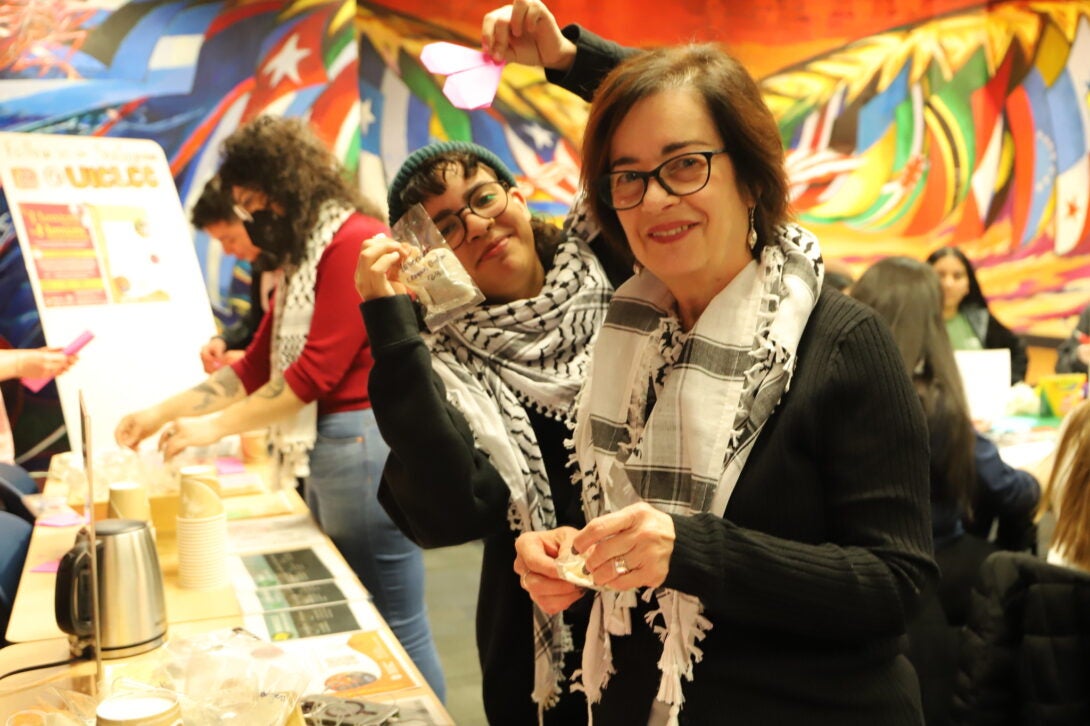Exploring cultures: the Rafael Cintrón Ortiz Latino Cultural Center
x

Since its establishment in 1976, the Rafael Cintrón Ortiz Latino Cultural Center (LCC) at the University of Illinois at Chicago (UIC) has served as a catalyst for social change and cultural understanding. The LCC, UIC’s first cultural center, is vital to expanding awareness and appreciation for Latine histories and tackling current concerns that the community faces. It is part of the seven Centers for Cultural Understanding and Social Change (CCUSC) under the Office of Diversity, Equity & Engagement (ODEE).
The LCC was born out of a movement in the mid-1970s when Latine student leaders, faculty, staff and community members demanded a dedicated space that would promote the intellectual and cultural development of Latine students at UIC. During the same period, the Latin American and Latino Studies Program (LALS) and Latin American Recruitment and Educational Services Program (LARES) were established at UIC. Since then, the LCC has grown to be a source of creative education, activism and support for innumerable students, bearing the name of the late Rafael Cintrón Ortiz, a cherished professor from Puerto Rico who supported the center’s establishment while teaching at UIC in the 1970s.
The mission of the LCC is to address issues that impact the lives of Latine people and to foster a greater awareness of their different cultural heritages and identities among local communities and college students. The center does this through a variety of engaged-learning programs and activities that use cultural heritage as an asset and connect environmental and social justice to address present-day problems and foster alliances between diverse students and communities in the Chicago area.
One of the LCC’s signature offerings is its “Environmental & Social Justice Dialogues” and tours of its murals, such as “El Despertar de las Américas,” the largest contemporary indoor mural in Chicago. This initiative helps visitors and students examine social and environmental challenges and solutions from the perspective of Latine experiences and compare them to their own.
The center also organizes a number of public programs that draw on local artists, cultural workers, community leaders and faculty such as Zona Abierta, Civic Cinema, Noche de Poetas and ARTivism open studios.
The LCC oversees a number of internship opportunities in addition to its public programs with the aim of fostering students’ academic and professional development. These include the Lead. Create. Change. and the Heritage Garden, which is in collaboration with the other cultural centers. These internship programs expand the capacity of students to advance environmental and social justice while building and sustaining community on campus to ease their journey as students.
The LCC’s extensive work receives backing through partnerships among different UIC departments, community organizations, national memberships and grant-based support. The center’s advocacy for social and environmental justice is bolstered by its membership in many coalitions and alliances, such as the Humanities Action Lab, Chicago Cultural Alliance and International Coalition of Sites of Conscience.
By means of its initiatives and collaborations, the LCC advocates for a resolute dedication to cultural and environmental sustainability, acknowledging the significance of cultural heritage while tackling ongoing obstacles confronting marginalized groups. The center’s initiatives highlight the force of solidarity among historically and currently excluded communities to advance positive social change.
The LCC is a vital resource for UIC and the larger Chicago community, providing a forum for the celebration of cultural heritage and the discussion of current challenges and solutions, as well as the development of future leaders, which is evident in its continued growth and relevancy.
Please visit the LCC’s website for more details about their programs and to learn how you can become involved: https://latinocultural.uic.edu/